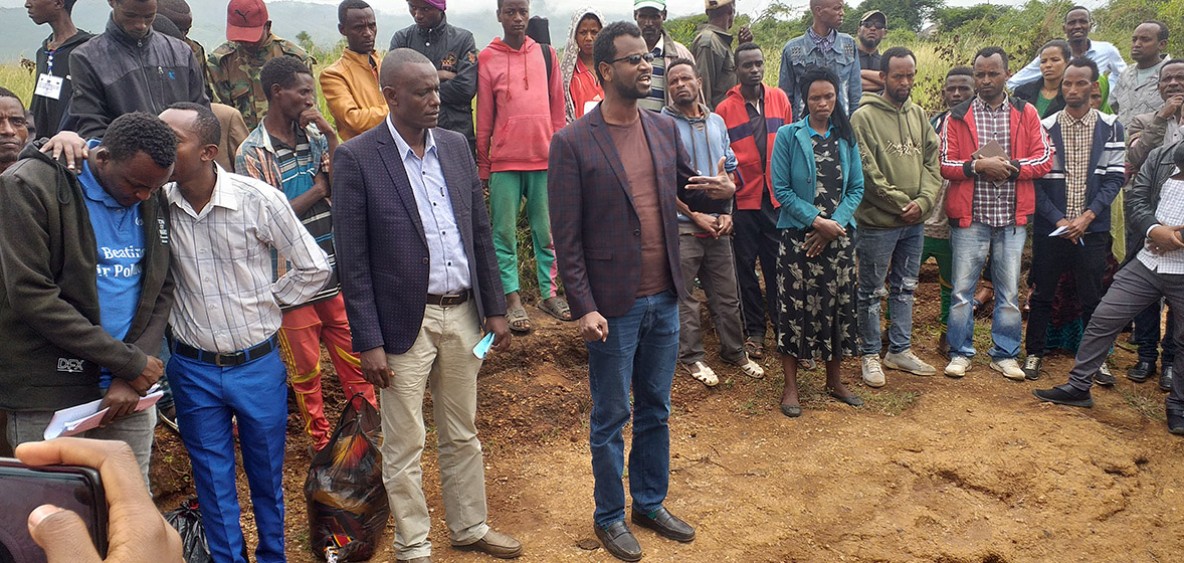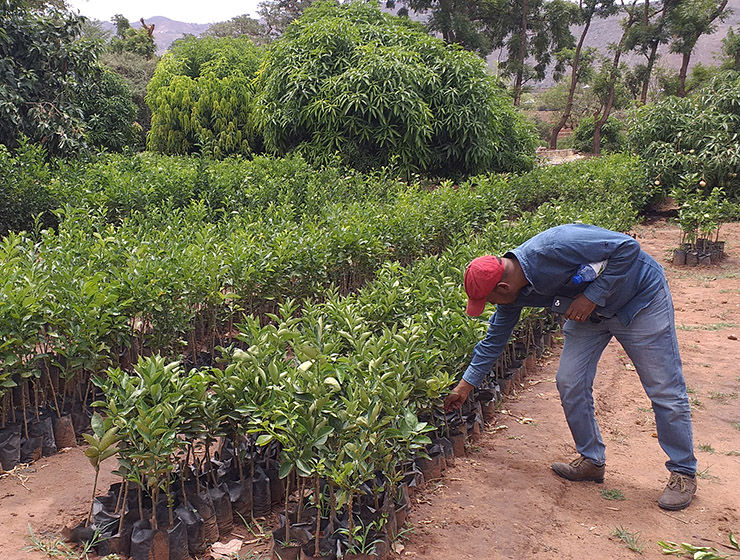
Over the past three years, the RFS Ethiopia project has established and developed the capacity of integrated multi-sector platforms at the national-, district- and community-level. Together, these platforms facilitate collaborative action and the exchange of resources and skills across sectors and levels of governance.
The challenges that face Africa’s agriculture sector are complex, involving multiple sectors, drivers, trends, objectives, and motivations. Because of this complexity, solving these challenges necessitates the open exchange of the ideas, knowledge, skills, and resources of a wide range of actors. Yet, governments are often structured in such a way that makes this type of close collaboration difficult, resulting in policies and institutions that fail to reflect the interconnected nature of climate, environment, agriculture, and food security.
The RFS Ethiopia project is working to overcome this challenge by establishing and developing the capacity of integrated multi-sector platforms to help design, implement, and monitor the RFS project at each level of governance. The goal of each platform is to promote collaboration between relevant government ministries and stakeholders in order to provide smallholder farmers with the policies, incentives, and resources needed to adopt productive and sustainable agricultural practices.
At the national level, the RFS Ethiopia project has established a multi-sector project steering committee, chaired by the Federal Environment Forest Climate Change Commission with members from the Ministry of Finance, Ministry of Agriculture, Ministry of Water and Energy, Ethiopia Biodiversity Institute, Ethiopian Wildlife Conservation Agency, six regional environment bureaus and 12 woreda (district) representatives. Each ministry contributes different knowledge, skills, resources and experience to the design and implementation of the project.
The inclusion of district representatives within the steering committees ensures a line of clear communication from the steering committee to the technical committees within each woreda. The district technical committees include representatives from agriculture, environment, gender, youth, and small and micro-enterprise development sector offices. Every three months, these officers meet to collaboratively plan and monitor the implementation of project activities within their communities and conduct field visits to review progress.

At the local level, the project has established 58 Community Watershed Management Committees (WMCs) to serve as the primary local institutions responsible for implementing the Sustainable Land and Water Management activities within project sites. The WMCs, together with the district technical committees, are responsible for rehabilitating over 61,000 ha of degraded land, preventing overgrazing, managing local water supplies, and halting and reversing deforestation within each project site.
In order to build capacity and awareness within the committees, the RFS Ethiopia project has held a range of awareness raising workshops, trainings, site visits and experience sharing workshops, covering topics that include the drivers of food insecurity, integrated landscape management, and new resilience-building technologies, amongst others. Following the training, the WMCs identified and mapped out landscapes for rehabilitation, while the district technical committees selected appropriate Sustainable Land Management technologies and approaches for each landscape.
Through the integrated implementation structure, the RFS project is able to connect local institutions with the national-level resources and expertise necessary for carrying out local landscape management plans. For example, extension workers from the Ministry of Agriculture are key actors in introducing new Sustainable Land Management practices and building the capacity of local farmers. The Ministry of Water, Irrigation and Energy is also involved at the local level, supplying fuel-saving cookstoves and biogas plants to project sites.
As the WMCs and district technical committees work in tandem to oversee and implement targeted landscape management plans, local landscapes are already showing visible signs of progress. Interventions have resulted in the dramatic recovery of ecosystem services, improved biodiversity, and have provided new sources of livestock fodder. By facilitating vertical collaboration at different levels of governance and empowering local institutions, the RFS country project is able to leverage the power of local knowledge and experience with federal resources. Local ownership ensures that interventions are suited to the needs of the community and sustainable beyond the lifespan of the RFS programme.
Subscribe to our monthly newsletter to receive updates on stories directly from the field across all our projects, upcoming events, new resources, and more.